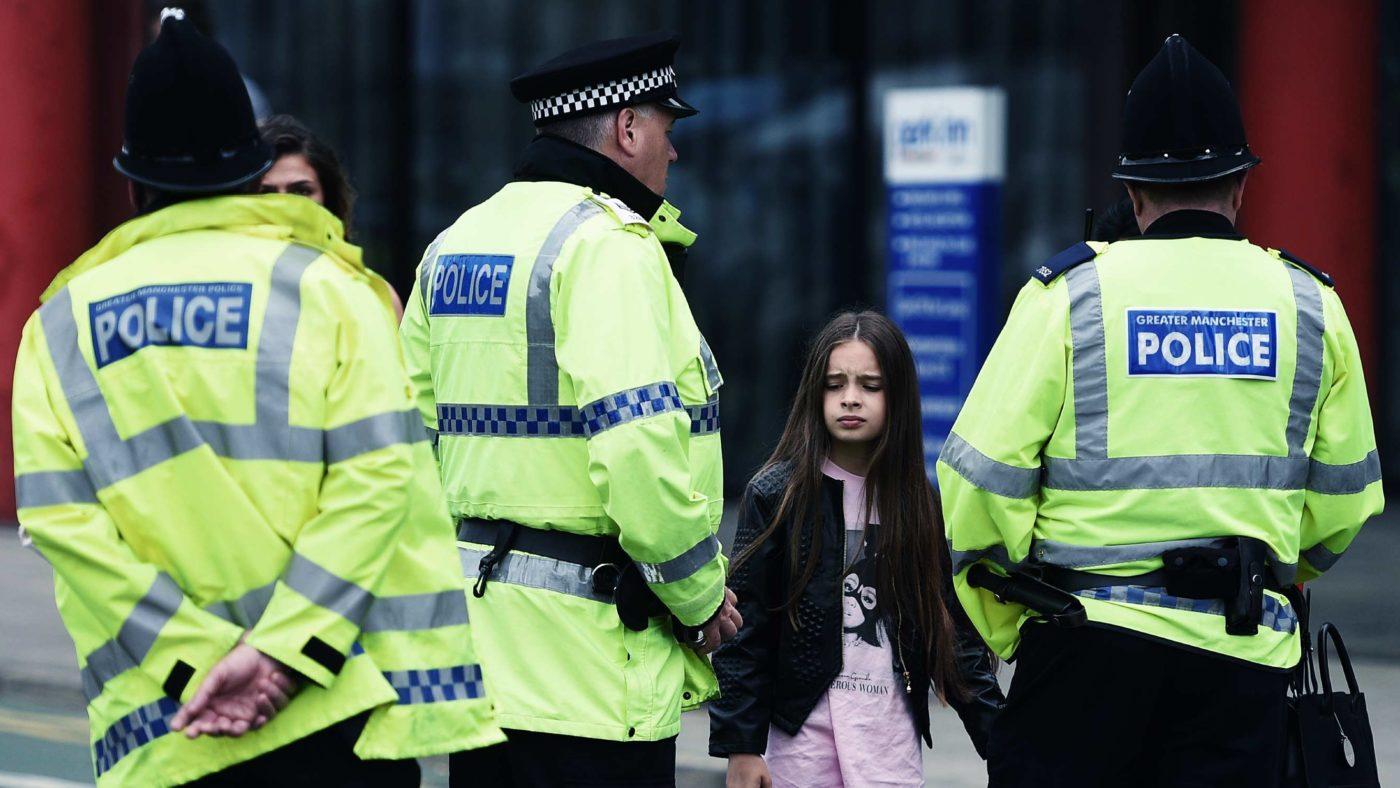In the most recent year for which records are available, 985 people in central Manchester died of cancer. Another 186 died of diseases of the digestive system. There were 36 suicides, 141 fatal accidents, and 12 deaths due to complications in surgery.
Across the North-West of England as a whole, there were many other killers. Skin disease claimed 266 people. Diseases of the male genital organs claimed 29. HIV took 29, and tuberculosis 32 – the same number as died in assaults.
When tragedy strikes, it can feel almost indecent to point to the wider context. Especially when we are still trying to digest the details spilling out of lives cut brutally short, of the pain and suffering of the victims, of the agonies of their families, of the bravery and generosity of the emergency services and civilians alike.
But that wider context, as Sir Malcolm Rifkind argued earlier today on CapX, is one in which terrorism is losing.
More than that: it is one which cuts against the entire narrative, the entire mythology, which empowers and sustains the fanatics in the first place.
Last night, 22 people died in Manchester. The figure may yet rise. The Prime Minister said earlier today that “this was among the worst terrorist incidents we have ever experienced in the United Kingdom”.
This is true – yet also remarkable. Think of how many people, inside this country and without, profess to hate our way of life. Then think about how glaringly unsuccessful they have actually been at disrupting it. In the UK, more than a decade has gone by since the July 7 bombings without comparable loss of life. Across the West, as I wrote on CapX in February, terrorism as a cause of death is less of a danger than falls, drownings, fire, poisoning, alcohol, syphilis, tetanus, appendicitis. In some countries, such as America, you’re at greater risk from lightning strikes, or lawnmowers, or falling out of bed.
I say this not to minimise the suffering of those in Manchester, or to argue that the media coverage is somehow inflated. This is a national tragedy, and should be reported as such.
I say it, rather, to offer the biggest possible fuck-you to the terrorists.
Whether far-Right extremists such as Anders Behring Breivik in Norway, or Islamist fanatics here in Britain, such killers tend to see themselves as the stars of their own movie – or at very least actors playing a starring role in a great clash of civilisations. Mohammed Merah, who killed seven people in Toulouse, even edited the footage (taken with a GoPro camera) into a boastful montage, complete with a soundtrack and lines from the Koran.
It is this same mentality that was on display in the statement from ISIS taking responsibility for the attack. “With Allah’s grace and support, a soldier of the Khilafah managed to place explosive devices in the midst of the gatherings of the Crusaders in the British city of Manchester,” it began.
BREAKING: ISIS officially claim responsibility for the bombing in Manchester last night that killed at least 22 people. pic.twitter.com/pCHX4Qttjc
— Conflict News (@Conflicts) May 23, 2017
Set aside for a moment the full horror of the idea that the children and teenagers gathered in that Manchester arena constitute “Crusaders” – that listening to inoffensive pop music is enough to earn you a death sentence.
Let’s instead take that statement on its own terms. If we are indeed at war with terrorism, how is terrorism doing?
The answer, as suggested above, is not terribly well.
In his recent book, The New Threat, the Observer journalist Jason Burke argued that we have moved from an era in which the murder of civilians is seen as a necessary evil to one in which slaughter is carried out for slaughter’s sake – a way of simultaneously intimidating the West yet lashing out at it.
He also argues that in terms of Islamist extremism (by far the most likely culprit for the Manchester attack) the problem is not just a few rotten apples, radicalised by distant hate preachers, but a wider milieu in which undereducated and underemployed young men drink in prejudice, ignorance and victimhood in their communities and on the online forums alike. To talk about them being “radicalised”, he argued, was as misleading as saying that people are “radicalised” into liking Chelsea or Arsenal: in the families and cultures which foster terrorism, hating the West is just what you do.
This is certainly a clear and pressing problem, and one which needs to be addressed. Yet the very reason why there is wall-to-wall coverage of this attack is that it is such an unusual and grotesque intrusion into everyday life.
The terrorists and terrorist groups that plot and carry out such attacks are nasty, malignant little cells within the body of British society. But they are hardly threatening to the whole: indeed, they are barely even cancerous. Just unsightly little polyps which irritate and disfigure the skin.
Think of it this way. ISIS and al-Qaeda and others have spent years doing their very best to kill us and maim us and disrupt our way of life. Yet they have barely even made a dent. For all that they romanticise their murders, and tell themselves they are serving a higher purpose, they are less of a threat to us in the aggregate than our cars, the elements, even our own genitalia.
Today, of course, is not about the aggregate. It is about specifics: specific horror, and specific suffering.
But even as we do our utmost to contain, deter and eliminate such attacks, and the thinking that drives them, we need to remind the terrorists who are so eager for attention and glorification of something. In the great movie of our national life, they aren’t the heroes. They aren’t even the villains. They’re barely even extras.


